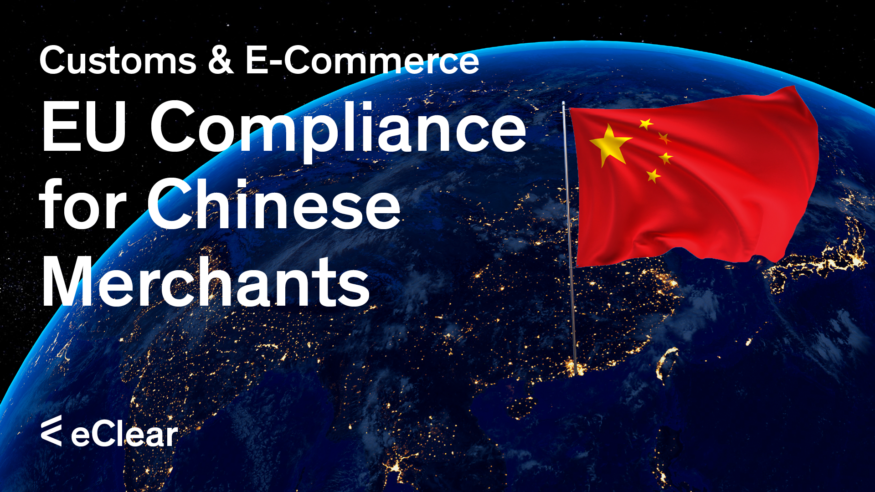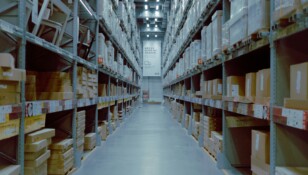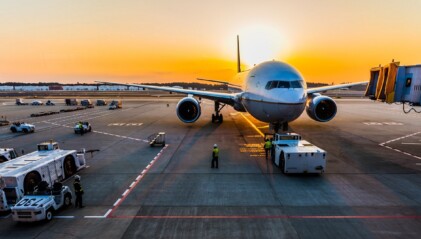- How does eClear facilitate EU-compliant trade with China? eClear’s advanced compliance tools, including automated customs clearance and AI-based solutions, help Chinese e-commerce sellers meet EU import standards, ensuring fair and efficient trade.
- What are the main benefits of using eClear’s compliance solutions? eClear’s solutions streamline customs processes, reduce errors, and ensure adherence to EU regulations, which enhances market integrity and consumer trust.
- Why is compliance important for Chinese e-commerce sellers in the EU market? Compliance with EU import regulations is crucial for avoiding fines, preventing shipment delays, and maintaining a positive reputation in a competitive market.
Fair and compliant trade practices are essential for maintaining a level playing field in the global market. The European Union has established stringent import regulations to ensure transparency and fairness, especially in the e-commerce sector. Compliance with these regulations is crucial for maintaining market integrity and preventing tax evasion and fraud. eClear supports Chinese e-commerce platforms, marketplaces, and sellers in adhering to these EU import regulations. By leveraging advanced technology and innovative tools, eClear helps bridge the gap between different technological levels and the varying quality of import/export control.
The Significance of Compliance in the Global Market
Fair trade is a fundamental principle in international commerce. It aims to provide equitable trading conditions, promote sustainable development, and protect the rights of producers and workers in developing countries. The fair trade movement has gained significant momentum, driven by increasing awareness and demand for ethically sourced products. For Chinese e-commerce sellers, adhering to fair trade practices and EU import regulations is about building trust and credibility in the global market.
According to the European Commission, the EU’s import regulations ensure that all imported goods meet strict safety, health, and environmental standards. These regulations are part of the EU’s broader strategy to promote fair trade and protect consumers within its member states.
How eClear Contributes to Compliant Trade
eClear’s comprehensive compliance solutions, such as ClearCustoms®, address the specific challenges Chinese e-commerce players face. These tools automate complex clearance and handling processes, reduce error risks, and ensure compliance with EU regulations. By providing clear, accurate, and real-time compliance information, eClear helps platforms maintain smooth operations.
EU customs authorities are increasingly overwhelmed by the volume of shipments processed at airports, exacerbated by the growing influx of goods. This underscores the urgent need for end-to-end automation to ensure efficient processing. ClearCustoms® meets this need by automating the receipt and integration of seller and product data into the customs process, enhancing compliance and supporting technical customs procedures.
With these advanced tools, Chinese e-commerce marketplaces and sellers can confidently navigate the EU import landscape, ensuring compliance and fair business practices. This facilitates smoother trade relations and enhances international commerce’s overall quality and efficiency.
The Challenge of Compliance for Chinese E-Commerce Sellers
The European Union’s regulatory framework ensures that all imported goods meet strict safety, health, and environmental standards, which can be daunting when unfamiliar with these requirements. The volume of parcels shipped from China to the EU is staggering, with millions of packages processed daily. For instance, platforms like AliExpress, Shein, and Temu handle billions of parcels each year destined for European customers.
The intricacies of the EU’s Value Added Tax (VAT) regulations add another layer of complexity. Since July 2021, the EU has implemented the Import-One-Stop-Shop (IOSS) system, simplifying VAT collection on low-value goods (below €150) imported into the EU. However, non-compliance can result in delayed shipments, additional costs, lost margins, and legal penalties, potentially jeopardising the sellers’ reputation and customer trust. (For more information on the IOSS, see our Deep Dive at the end of this article.)
Impact of Non-Compliance
The consequences of non-compliance with EU import regulations can be severe for both sellers and the EU market. For sellers, failure to adhere to these regulations can lead to hefty fines, confiscating goods, and even bans from selling in the EU. Such punitive measures result in financial losses and damage the seller’s reputation, which is crucial in the highly competitive e-commerce market.
Non-compliance also affects the EU market by disrupting the level playing field. There is an unfair advantage to non-compliant sellers over EU merchants and those who invest in compliance, thereby undermining fair competition. Moreover, non-compliant goods can pose safety and environmental risks, leading to potential harm for consumers and ecological damage. This necessitates stringent regulations and enforcement to maintain market integrity and consumer trust.
The EU’s significant efforts to combat VAT fraud and ensure proper revenue collection underscore the importance of these regulations. VAT non-compliance costs EU countries billions of euros annually, which could otherwise be invested in public services and infrastructure.
eClear’s Solution for Customs Compliance
ClearCustoms®
ClearCustoms® automates customs processes, ensuring accurate cost calculation and easing fast shipment to European markets. This solution primarily benefits non-EU businesses importing low-value goods (up to EUR 150) into the EU, offering a full-service customs clearance solution under the IOSS scheme (Import-One-Stop Shop). It provides a comprehensive service that includes airport logistics, customs inspection, and handover to last-mile carriers for delivery to consumers and reduces lead times. This “fire-and-forget” solution simplifies the entire import process, making it easier to comply with EU customs regulations and enhancing customer satisfaction.
CustomsAI®
CustomsAI® is an advanced tool that automates the customs tariff classification for your entire product inventory. This tool uses artificial intelligence to optimise the classification process, ensuring compliance, cost management, and competitiveness. CustomsAI® integrates seamlessly with existing ERP systems, making it a robust solution for businesses facing the complexities of customs tariff codes.
Key benefits of CustomsAI® include increased efficiency in the classification process, qualified master data enrichment, reduced effort and costs, and ensured tax compliance. By automating the classification of product inventories and keeping existing classifications up to date, CustomsAI® helps businesses manage their resources better and avoid penalties, thus enabling smoother international expansion.
EU Regulation Deep Dive: The Deemed Supplier Rule and Its Advantages
The deemed supplier rule under the Import-One-Stop-Shop regulations simplifies VAT compliance for cross-border e-commerce transactions. Introduced as part of the EU’s VAT e-commerce package, the IOSS allows sellers to manage VAT obligations for low-value goods (up to €150) imported into the EU more efficiently.
Under the deemed supplier rule, online marketplaces and platforms facilitating sales to EU consumers are considered suppliers for VAT purposes. This means these platforms are responsible for collecting, reporting, and remitting VAT on these transactions instead of the individual sellers. For Chinese e-commerce sellers, this rule reduces the complexity of VAT compliance, as they no longer need to register for VAT in each EU member state where their customers are located.
The IOSS system streamlines the import process by focusing on VAT rather than customs duties. When goods are shipped to the EU under the IOSS, they benefit from expedited customs clearance as the VAT is pre-paid, eliminating the need for consumers to pay VAT upon delivery. This enhances the buying experience and reduces administrative burdens for sellers.
The IOSS provides several advantages for Chinese sellers:
- Simplified VAT Registration: Chinese sellers avoid registering for VAT in multiple EU countries, as the online marketplaces handle VAT collection and remittance.
- Expedited Customs Clearance: Pre-paid VAT under the IOSS accelerates customs processes, reducing delays and improving delivery times, which is crucial for maintaining customer satisfaction.
- Enhanced Customer Experience: Consumers benefit from a seamless buying experience without unexpected VAT charges at delivery, leading to higher satisfaction and potentially more repeat purchases.
- Reduced Administrative Burden: The IOSS simplifies compliance, allowing sellers to focus on their core business activities rather than dealing with complex VAT regulations.
In contrast, EU sellers often face significant challenges with VAT compliance, such as:
- Multiple Registrations: EU sellers must register for VAT in each member state where they exceed the distance selling thresholds, increasing administrative complexity and costs. (Unless they can use the EU One-Stop-Shop (OSS))
- Cross-Border VAT Payments: Managing VAT payments and returns across different jurisdictions can be cumbersome and error-prone.
- Increased Risk of Non-Compliance: Navigating the varying VAT rules and rates across the EU increases the risk of non-compliance, which can lead to penalties and audits.
Let’s stay in touch!
Stay up to date on the latest market trends, best practices and regulatory changes affecting cross-border trade by following us on LinkedIn.







